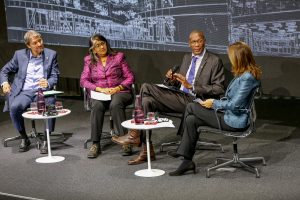
More than 20 professors, researchers and students work directly on SDG 10. Their work includes academic publications, academic and executive education, and engagement in external initiatives. We also offer an Executive Master in Development Policies and Practices, as well as academic Masters and PhD programmes and courses on International Economics.


Border Violence by Other Means: Forms and impacts of Bureaucratic Violence in the Swiss asylum system

Covid-19 and Human Rights of Migrants

Crime, Inequality and Development in South Africa

Call for Papers: Inequality, Discrimination, and the Financial System

Public Policy, Economic Development and Gender

Migration, Gender, and family: the moral economy of transnational Cameroonian migrants remittances

Ethiopia’s Homegrown Economic Reform Plan

The pandemic and the urban migrant

L’antiracisme est une question de démocratie

Public Investment for the Recovery: IMF October 2020 Fiscal Monitor

De l’anti-antiracisme
Discover more SDGs
Goal 10 calls for “reducing inequalities in income as well as those based on age, sex, disability, race, ethnicity, origin, religion or economic or other status within a country. The Goal also addresses inequalities among countries, including those related to representation, migration and development assistance” as put by the UN Sustainable Development Knowledge Platform. Read more about Goal 10